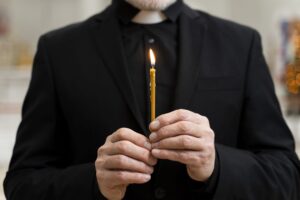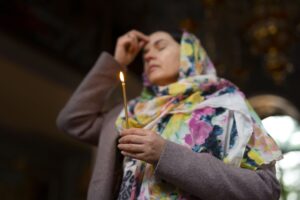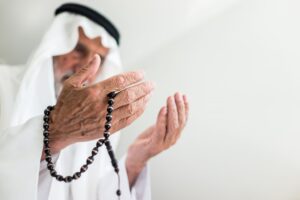40 Days After Death: The Symbolism and Rituals Across Religions
When to Start Counting 40 Days After Death
“When to start counting 40 days after death?” This question surfaces repeatedly in families navigating loss for the first time. The answer depends on your faith background and cultural traditions, each offering its own wisdom about timing.
Some families begin counting from the exact moment their loved one drew their final breath. This approach honors the belief that the soul’s journey begins immediately. Catholic and Orthodox Christian families often follow this method, marking day one as the moment of passing itself.
Others prefer waiting until the funeral services conclude. This gives families breathing room to handle immediate arrangements without worrying about calculations during their most overwhelming days. The funeral becomes a natural starting point for the forty-day observance.
Distance sometimes makes the choice for you. When family members live far apart, the funeral might happen days or even weeks after death. Rural communities dealing with harsh weather conditions face similar delays. In these situations, most religious leaders encourage flexibility – start counting when your observance actually becomes possible.
Islamic traditions typically begin from the date of death, regardless of when burial occurs. Jewish customs focus more on the immediate seven-day shiva period, though some families incorporate longer observances. Buddhist practices often align with funeral timing, especially when elaborate ceremonies require preparation time.
What matters most is honoring your loved one through intentional remembrance, not perfect timing. Whether you start counting from the moment of death or the day of burial, the forty days ahead offer opportunities for healing, prayer, and connection with others who share your loss.
40 Days After Death in Christianity (Catholic and Orthodox Traditions)
Christianity wraps the forty-day period in layers of meaning that stretch back through biblical history. When Jesus spent forty days between resurrection and ascension, He established a pattern that countless families have found comforting during their darkest hours.
40 days after death, Catholic tradition centers on the belief that souls need time and prayer for their heavenly journey. Catholics don’t see death as an instant transition but rather as a process where the living can still help their departed loved ones through prayer and good works. The practice gains momentum on the seventh day. 7 days after death, Catholics often gather for a special Mass, sharing stories about their loved one while finding comfort in familiar prayers. This first-week milestone acknowledges that acute grief needs community support, not isolation.
40 days of prayer for the dead becomes a sustained act of love. Families light candles, recite rosaries, and commission Masses throughout the entire period. Some organize prayer groups that meet weekly. Others maintain daily prayer routines at home. The approach matters less than the consistency – these prayers represent an ongoing connection with someone who shaped your life.
Orthodox 40 days after death traditions add their own rich customs to this observance. Orthodox families prepare special memorial meals called “makaria” on the third, ninth, and fortieth days. These gatherings blend mourning with celebration, acknowledging both loss and the hope of eternal life.
The fortieth-day Orthodox memorial service often becomes the most meaningful ceremony for families. Churches fill with the aroma of incense while familiar hymns wash over grieving hearts. The priest offers prayers specifically for the departed soul, while family members find comfort in ancient words that have sustained countless generations through similar losses.
Both Catholic and Orthodox families often report that maintaining these practices helps them process grief gradually rather than feeling overwhelmed by sudden, permanent loss. The forty-day structure provides purpose during weeks when daily life feels meaningless.
Death Rituals in Different Religions
Death rituals in different religions expose a wide range of ideas and customs, reflecting the variety of how many civilizations and faiths see death, grief, and the next world. Many religions regard the 40th day of death as a major turning point in the soul’s trip, when particular ceremonies and prayers are carried out to respect the departed and help the soul reach its ultimate destination.
Hinduism
Hinduism regards the forty-first day of death as an ongoing grieving process. The family of the deceased performs Shraddha, a set of ceremonies meant to assist the soul in reaching emancipation (moksha) and escaping the cycle of reincarnation. On designated days, including the 13th and 40th days following death, Shraddha rites are carried out, culminating in offerings and prayers to assist the soul to travel on from the physical world.
Buddhism
In Buddhism, especially Tibetan Buddhism-death is seen as a passage between lives. Considered to be entering a state known as the bardo, the soul gets ready for its next life. Though they span somewhat more than forty days, 49 days after death, prayers and rituals are carried out with the same spiritual relevance. These rites are supposed to direct the soul toward a nice rebirth.
Islam
Within Islam, the 40th day of death marks the end of a formal grieving period. Families come to pray for the dead, begging Allah for pardon and kindness. Often carried out in the deceased’s name, acts of charity reflect the Islamic conviction that good deeds should continue long after death. The forty days also represent a period of introspection for the living, guiding them toward faith-based peace and helping them to process their loss.
With the 40th day acting as a potent emblem of transition and spiritual passage, these death rituals in different religions underline the universal human desire to honor the dead and support the soul on its trip.
The Journey of the Soul and What Happens After 40 Days
Wondering what happens to the soul 40 days after death opens conversations that touch the deepest parts of human experience. Every faith tradition offers its own understanding, yet common threads weave through these diverse beliefs like golden strands in a tapestry of hope.
The 40-day mourning period in the Bible finds its roots in profound spiritual experiences. Moses spent forty days receiving divine law on Mount Sinai. Elijah walked forty days to reach God’s mountain. Jesus fasted for forty days before beginning His ministry. These biblical accounts establish forty as a number representing completion, testing, and spiritual breakthrough.
Many Christians believe the soul undergoes purification during this period. Catholic families often describe feeling their loved one’s presence strongly during the first few weeks, then sensing a gradual release as the fortieth day approaches. They view their prayers and charitable acts as helping the soul complete its heavenly journey.
Orthodox traditions teach that souls receive divine judgment on the fortieth day. According to this understanding, departed souls spend the initial weeks visiting places that held meaning during their earthly life – the family home, childhood neighborhood, or favorite quiet spots. Memorial services during this time provide spiritual support for this farewell tour.
Some families also observe the 9th day after death as particularly meaningful. This earlier milestone allows for intimate family gatherings while everyone prepares for the larger fortieth-day observance. The ninth day often becomes a time for sharing favorite memories or reading letters the deceased had written.
Eastern religions paint different pictures of the post-death experience. Hindu teachings describe the soul preparing for its next incarnation, with the fortieth day marking when the subtle body finally dissolves completely. Buddhist philosophy presents the bardo experience, where consciousness navigates the space between one life and the next.
Islamic beliefs describe immediate divine judgment followed by a waiting period until the final resurrection. For Muslim families, the forty-day observance provides closure for the living rather than affecting the deceased’s spiritual state. This perspective emphasizes how mourning rituals serve the survivors’ psychological and spiritual needs.
Modern grief research supports the wisdom embedded in these forty-day observances. Psychologists note that acute grief often begins shifting around the six-week mark, suggesting ancient traditions understood something profound about human emotional processing.
Healthcare workers who provide comfort during difficult passages, including those recognizing signs of impending death after stroke, often witness patterns that seem to validate beliefs about gradual spiritual departure rather than instant transition. The forty-day framework provides structure when grief feels chaotic. This extended period allows the initial shock to subside while creating space for sustained remembrance. Communities use this time to gather repeatedly, share meals, and begin the slow work of healing together.
These traditions acknowledge that love doesn’t stop at death – it transforms. The forty days become a bridge between the acute pain of fresh loss and the gentler sadness of long-term remembrance.
Love’s Persistence Beyond the Heartbeat
The reverence surrounding forty days after death reveals something beautiful about human nature – our refusal to let love end with a heartbeat. Whether through Catholic Masses that fill churches with candlelight, Orthodox memorial meals that blend tears with laughter, Hindu ceremonies that honor the soul’s continuing journey, or Islamic charity that extends kindness in a loved one’s name, these traditions transform grief into purposeful action.
These customs understand that death represents a process, not a moment. The forty-day framework gives families permission to grieve gradually rather than expecting instant healing. Communities gather repeatedly during this period, creating a safety net of support when the ground feels unsteady beneath your feet.
Modern end-of-life care, including hospice care teams, increasingly recognizes how these traditional observances support healing. Healthcare providers often work alongside religious leaders to ensure families can maintain cultural practices while receiving medical support. This collaboration honors both physical comfort and spiritual needs during life’s most difficult transition.
The persistence of forty-day traditions across centuries and continents speaks to their enduring power. In our fast-paced world, these practices offer something irreplaceable – time to process, community to lean on, and rituals that make sense of senseless loss.







Post Comments